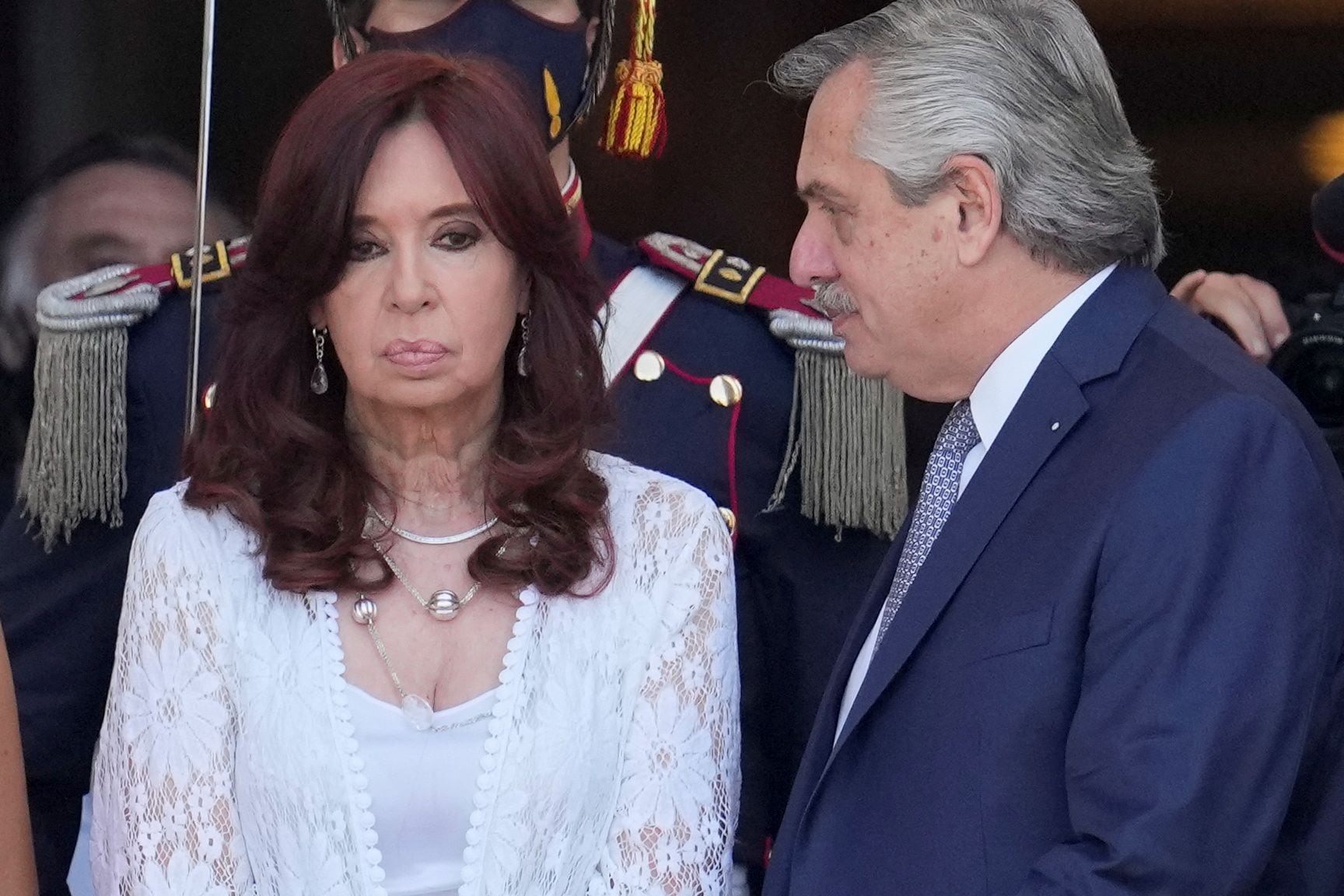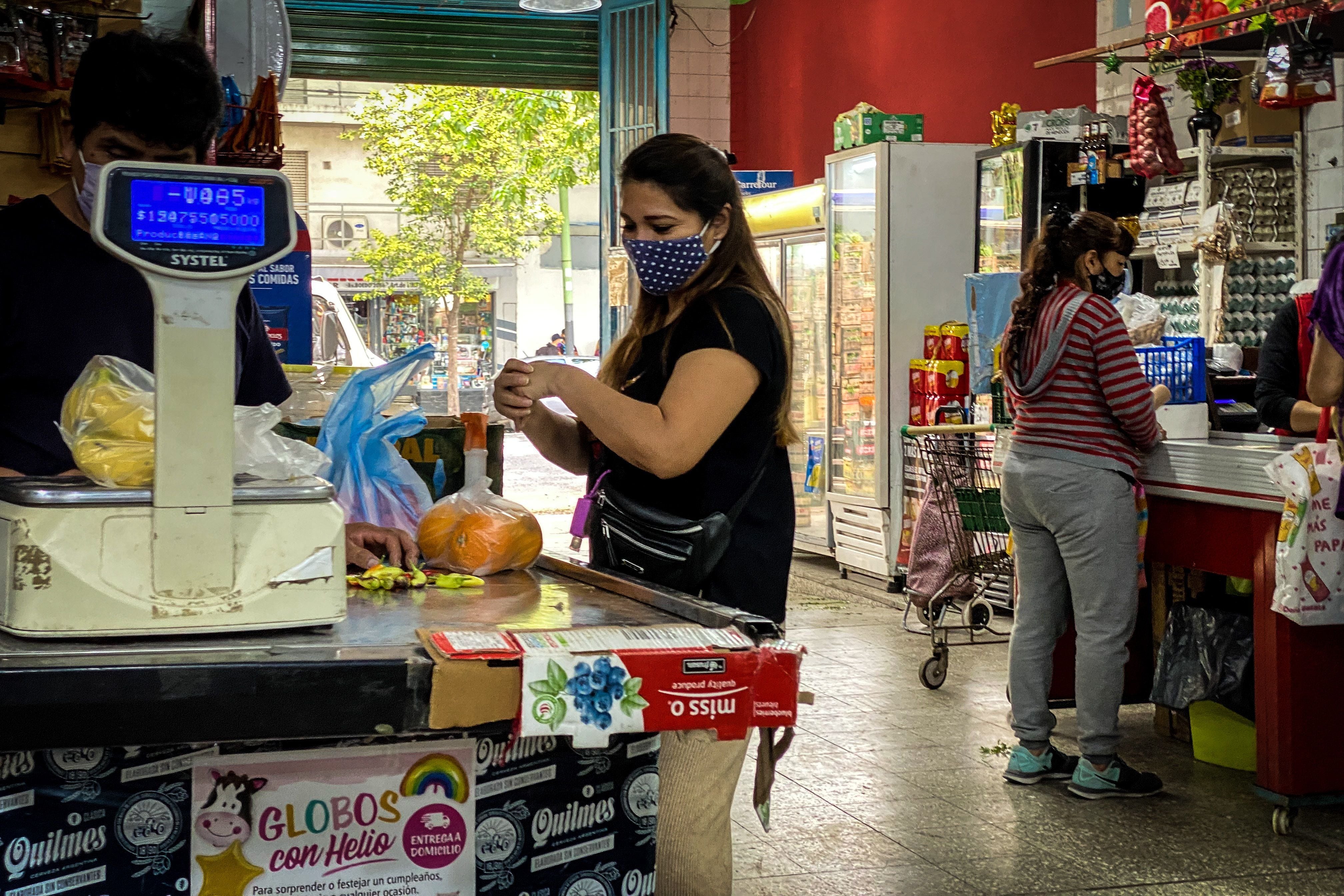As internal tensions in the Frente de Todos escalate day after day, the Chief of Staff of the Nation, Juan Manzur tried to put some calm in statements to a television station this morning, when he entered the Casa Rosada. “We work for the unity of our political space. We have differences, there are different points of view, as everywhere else, and this is normal. What we don't have to lose is the objective, and in that context unity is a non-negotiable point within our political space,” he said.
In an interview with C5N, Manzur — who doesn't usually give many interviews — said when he was consulted about the lack of communication for several days between President Alberto Fernández and Vice President Cristina Kirchner, that “we are going to continue working for unity and mainly because of what the President of the Nation asked us to is to prioritize the main problems that Argentines have today. These are times when you have to be a little prudent, of serenity and obviously put the main problems to be solved by the entire Argentine people above the sectoral issues.”
The former governor of Tucumán defined the relationship between the president and his vice as “institutional”, and said he did not know if they had spoken to each other in recent days. Nor did he comment on the possibility of a meeting between the two to discuss the political differences that were exposed by cross-accusations from one side and from the other.

Beyond his statements, the differences in ruling today appear to be irreconcilable despite the requests for unity by some space actors. And this will be reflected in the various events that will take place this March 24 to commemorate the Day of Memory, Truth and Justice, with separate acts by the President in the Ministry of Science and Technology together with Minister Daniel Filmus and another from La Campora, at former ESMA and Plaza de Mayo.
War on inflation
Manzur also referred to the tools that the National Government is trying to apply to stop the rise in prices. “Our government has always been characterized by dialogue, that dialogue has to be fruitful and, based on that, bring positions closer together. The doors are wide open, as always. At the Wages Council, the President called for the coming weeks to meet the business sector, the sector that represents workers and the area related to the productive engines of Argentina, such as the countryside. We are working to bring positions closer together and contain all the variables that exist at the international level,” said the Chief of Staff.
“The big challenge is to control inflation. We know that there is a situation around the inflationary process, that there is a very complex situation at the global level. We see advanced countries, which did not have inflation and today are at 7, 8, 10% or even more. In an economy like Argentina, so weakened and with a significant debt, this obviously impacts much more,” he added.

“The meetings of the economic area, the production area of the Secretariat of Commerce are permanent and of each of these meetings they have been informing us in detail, both to me and to the President of the Nation. Today a large part of our cabinet, a large part of our team and, fundamentally, the economic team is dedicated to containing prices. We must continue to make progress in stabilizing macroeconomic variables, I believe that this is the great challenge we have towards the near future. Continue investing in generating conditions for private investment, public investment, through infrastructure works that are underway throughout the country,” he said.
He also highlighted the efforts of the Minister of Economy, Martín Guzmán, to international credit agencies. “Argentina has been making a huge effort to normalize its situation. Our Government received a country with many difficulties and indebted, plus a pandemic that no one expected. For two years we had all these kinds of complications and, within this framework, progress continued. First to normalize the situation with external private creditors and now we are looking at normalizing the situation with the IMF. Yesterday (on Tuesday 22nd), Minister Guzman also generated a sort of extension with the Paris Club. Little by little, the situation with external debtors will be normalized,” he stressed.
Keep reading:
Últimas Noticias
Debanhi Escobar: they secured the motel where she was found lifeless in a cistern
Members of the Specialized Prosecutor's Office in Nuevo León secured the Nueva Castilla Motel as part of the investigations into the case

The oldest person in the world died at the age of 119
Kane Tanaka lived in Japan. She was born six months earlier than George Orwell, the same year that the Wright brothers first flew, and Marie Curie became the first woman to win a Nobel Prize

Macabre find in CDMX: they left a body bagged and tied in a taxi
The body was left in the back seats of the car. It was covered with black bags and tied with industrial tape
The eagles of America will face Manchester City in a duel of legends. Here are the details
The top Mexican football champion will play a match with Pep Guardiola's squad in the Lone Star Cup

Why is it good to bring dogs out to know the world when they are puppies
A so-called protection against the spread of diseases threatens the integral development of dogs




